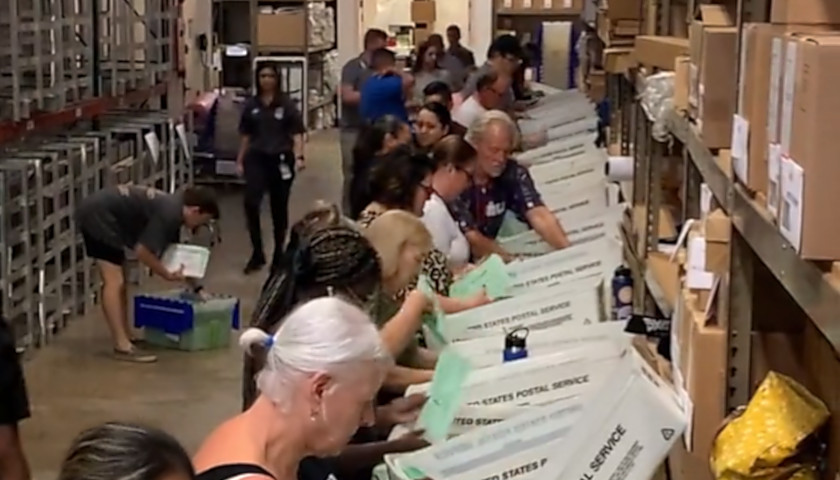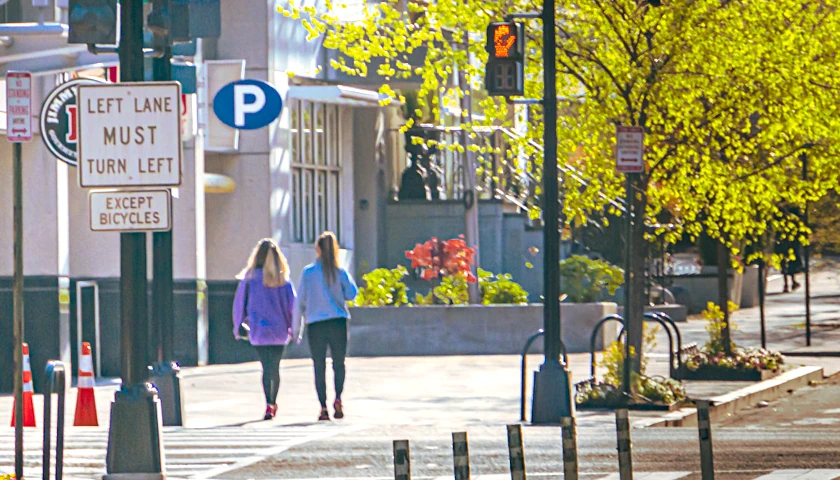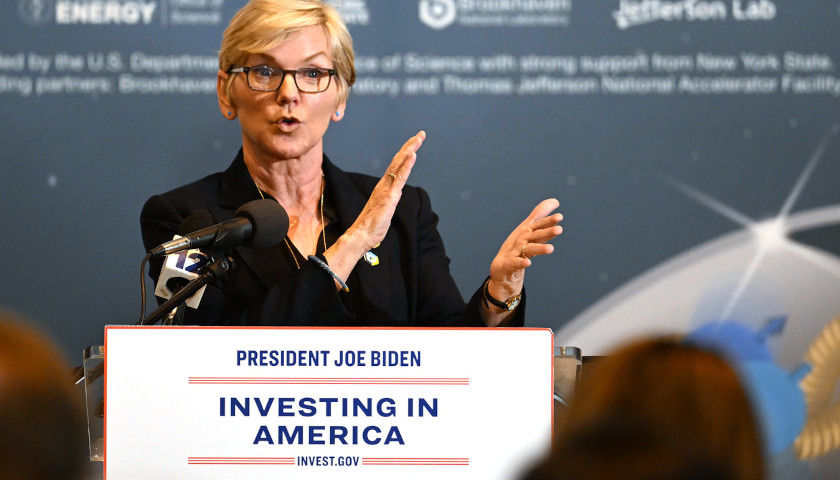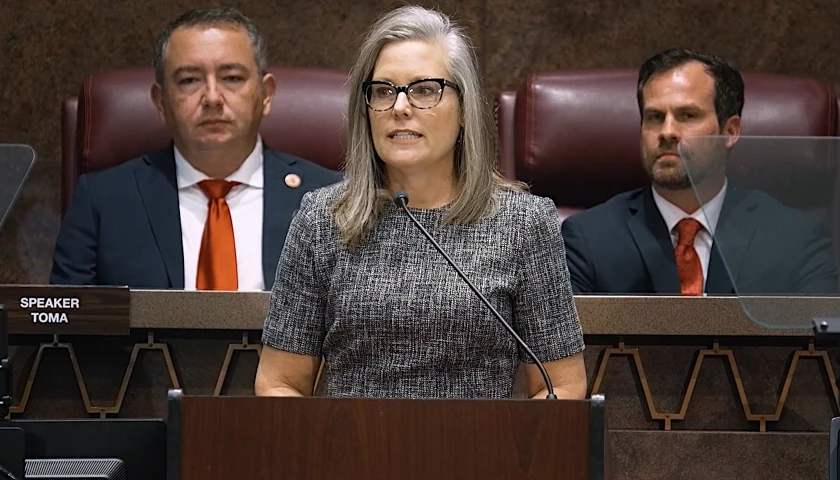The Arizona Senate Judiciary and Elections Committee passed election integrity bill SB 1011 with a 4-3 vote along party lines on Wednesday. Sponsored by Arizona Senate President Warren Petersen (R-Mesa), the bill is modeled after Florida election law, in order to speed up ballot tabulation. Florida announces election results overnight after an election, whereas Arizona has come under criticism for taking up to two weeks due to lengthy signature verification on mail-in ballot affidavits.
The bill provides that voters who return their early ballots to early voting locations after 7 p.m. the Friday before the election would be required to present identification. Only if they drop the ballots off at the actual county recorder’s office that late would they be allowed to skip showing ID. Currently, voters can drop early ballots off at any location without ID up until 7 p.m. on Election Day. Additionally, in-person voting would be expanded past Friday before the election to Saturday and Sunday before the election.
Senator Wendy Rogers (R-Flagstaff) (pictured here), who chairs the committee, added an amendment, which was adopted during the hearing. It expands voting from 27 days to 29 days, clarified that voters can return ballots to any polling place before 7 p.m. on Election Day as long as they show ID, and allows schools to be used as polling places.
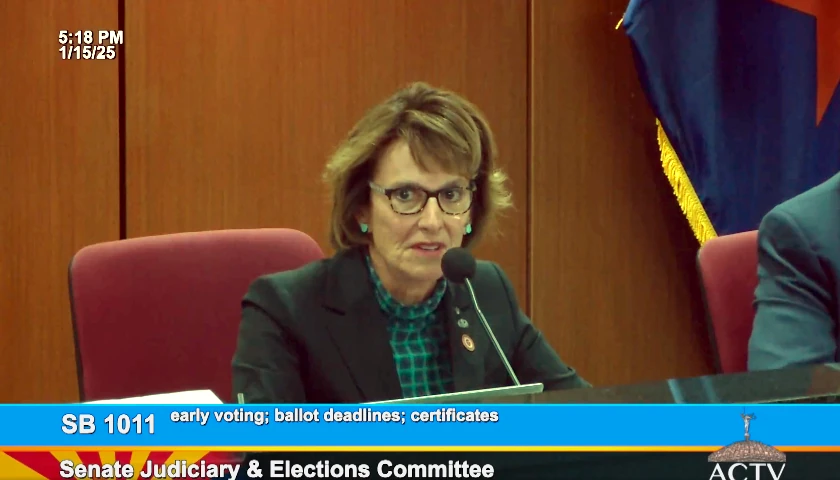
The hearing began with testimony from Petersen. “I’m here because this is a constituent-driven issue after the election,” he said. “In my over 12 years at the legislature, I think I received more frustration over this issue, more texts, more comments than almost any other issue since I’ve been here … So I committed to making sure Arizona could be a state — just like so many other states that deliver election results the night of — instead of being the state who delivered their electoral results last.”
Democrats on the committee accused him of reducing access to voting with the bill. Petersen retorted that the bill also increases access by adding two more days to vote, and adding additional polling locations. “At a minimum, it’s equal access,” he said. Petersen said by having early in-person voters show ID instead of waiting to verify their signatures later will save time since the signature verification process is so time consuming.
When State Representative Analise Ortiz (D-Phoenix) persisted in accusing him of cutting off voter access, he responded, “We need to ask ourselves, ‘How much time do we need to vote? Do we need seven days? Do we need 14 days? Do we need 29 days?’ At what point does it saturate where you’ve had enough days to vote? I think 29 days is probably enough days. You can put in the mail, you can go early in person.”
The Democrats’ primary objections revolved around speculating that a voter could run into a problem voting if they waited to vote until the last minute, such as a bomb threat closing the location, and that voters might not know about the change in the law and show up at the last minute and not be allowed to vote.
State Senator John Kavanagh (R-Fountain Hills) responded to that concern, stating that judges have issued orders keeping polling places open later due to issues like bomb threats arising.
State Senator Lauren Kuby (D-Tempe), a far left progressive activist who has been described as a “perennial candidate,” complained that increasing the number of polling locations by placing them in schools would be dangerous since there is “increasing political violence and threats of political violence in our state, in our country.”
Kavanagh shot back, “I’ve lived here since 1993. I used to vote at polling places. I’m not aware of any violence at our polling places. I mean, can you give me some instances where there’s been violence in polling places over the last 20 years?”
Kuby said there were “implicit threats” of violence since “there are people with guns outside polling places.”
Kavanagh retorted, “And there are people walking around with guns outside the legislature, outside the supermarket, outside everywhere and implicit threats. That means no threats. That means imaginary threats. So there has been no violence in public places, at least in my experience, going back to 1993 so I don’t think that is an argument at all not to have the public polling places in schools.”
Several officials and activists were given a short amount of time to testify. New Maricopa County Recorder Justin Heap (pictured here) spoke in favor of the bill. “I think that across the board, concerns over election integrity have been a major issue in Arizona for a very long time,” he said. “The one thing that everyone seems to agree on is that Florida is doing it better than almost any other state and nation. … The most important thing for the recorders, I believe, is this one is the cutting off the early ballots several days before the election. … One of the biggest causes of people not trusting the elections is that delay that is caused after — if it takes a week to two weeks to tell you who won the election. No one is going to trust it.”
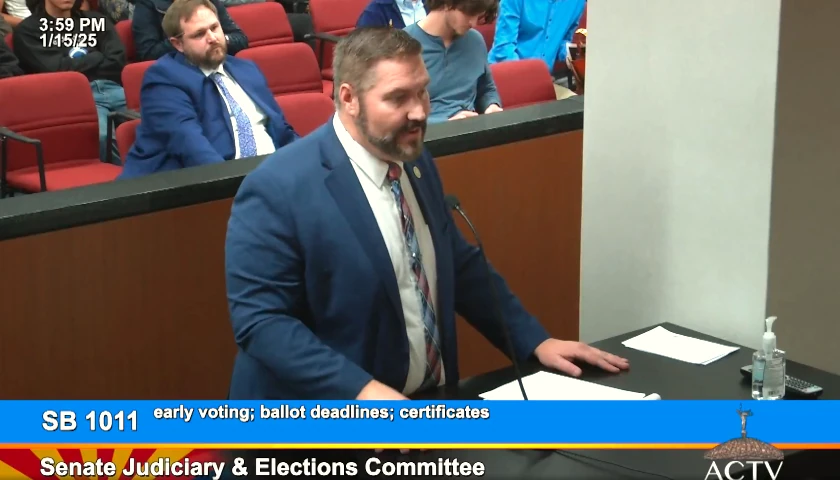
One of the committee members asked Heap if Maricopa County is currently using ballot drop boxes. Heap said they have all been removed except for two, located outside the recorder’s offices in Phoenix and Mesa.
Pima County Recorder Gabriella Cázares-Kelly (pictured here), whose X profile lists her pronouns and “dismantling white supremacy,” talked at length about how difficult it is for Native Americans to vote.
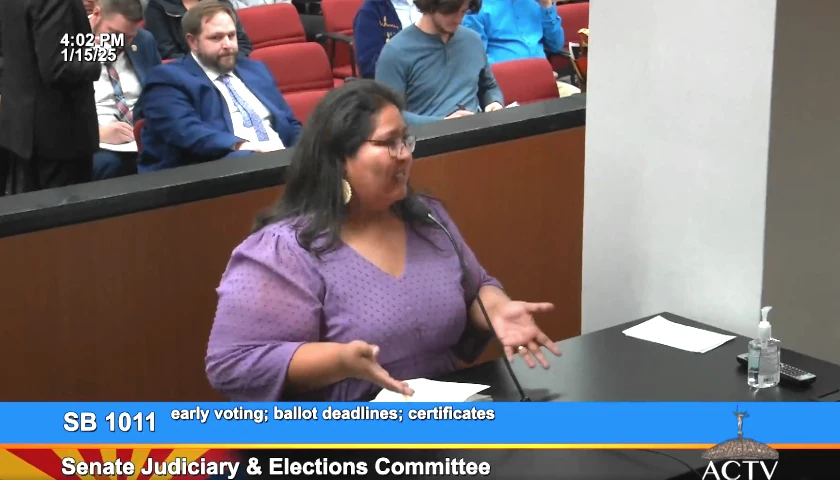
Ortiz said the law will be a “surprise” to “potentially hundreds of thousands of people,” implying that they will be unable to vote. She didn’t address how election laws change all the time in the state and don’t disenfranchise hundreds of thousands of voters.
None of the Democrats on the committee brought up concerns about whether voters in Florida have been disenfranchised by these laws.
Jeremy Garrett, an electoral campaign manager at the Arizona progressive group Our Voice our Vote, who was accused of illegally collecting signatures for a sham candidate last year, testified against the bill. “We are leaving a lot of people behind, and that we do not believe that we should prioritize speed over leaving people behind,” he said.
State Senator Mark Finchem (R-Prescott), who defeated Senator Ken Bennett in the primary last year due to Bennett’s poor record on election integrity, responded, “Sir, are you aware of the percentage of people in the United States that want to know, not just the United States, but Arizona, percentage of people that think, think we are way behind the curve with result with results reporting, are you aware of the percentage of people that want it?”
Garrett responded that he did not know the percentage. Finchem retorted, “Three-quarters of the people in the United States feel that we are not doing our job.”
Patty Porter, who identified herself as the first vice chair of LD 12 and a Maricopa County Republican member at large, spoke in favor of the bill. “I’m not buying it that they need more time,” she said. “They know that they have the time to do it. They’re going to go wait in the baseball park to get their roll call tickets and then wait for hours — they can wait in line to vote. That’s the freedom that our founders died for.”
Greg Blackie of the Arizona Free Enterprise Club said the bill should go further and require onsite tabulation at the voting locations. He said that way voters can fill out their mail-in ballots at home around the dinner table, then go to a voting location and feed it into a voting machine tabulator. He said he disagreed with extending the number of voting days from 27 to 29 days.
Grassroots activist Merissa Hamilton said she and her organization EZAZ contacted over 7.2 million voters and had over 300,000 conversations with them. She said the reason why a lot of voters don’t vote in person early on is because the early voting locations are only open Monday through Friday from 8 to 5 p.m. “which is when most people are working.” She suggested extending the hours.
In response to criticism stating that the bill would suppress votes, Kavanagh said, “I don’t think that’s suppressing votes … is not suppressing votes any more than having to wait in a doctor’s office is suppressing your right to medical care or having to wait in a grocery line is suppressing your teeth. So sometimes just wait, online, especially if you put yourself into that position by delaying almost a month dropping off the ballot.”
Jen Marson, executive director of the Arizona Association of Counties, said the organization agreed to support the bill due to the amendment.
Rogers said the bill is still being hammered out. “It won’t be perfect. There are cleanups necessary.”
– – –
Rachel Alexander is a reporter at The Arizona Sun Times and The Star News Network. Follow Rachel on Twitter / X. Email tips to [email protected].
Photo “Maricopa County Counts Ballots” by Maricopa County.

